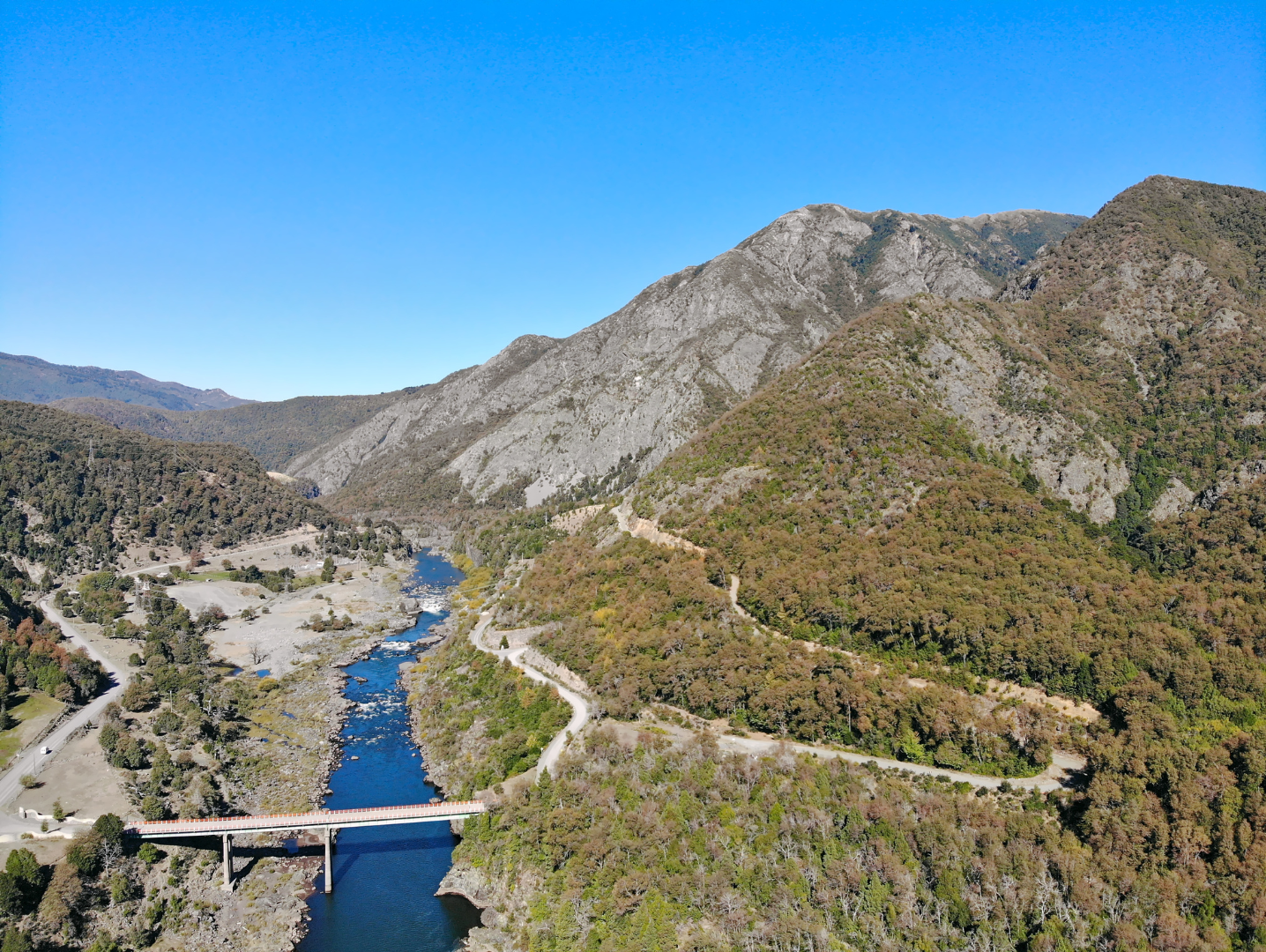By Monti Aguirre
Early this year, a coalition of Chilean civil society organizations sent a powerful letter to executives of China Communications Construction Co. Ltd. (CCCC) and its subsidiary China International Water & Electric Corporation (CWE), warning of the legal, environmental, and social risks associated with the proposed Rucalhue Dam on the Biobío River. The letter outlined how the project, part of a long history of hydropower expansion in the region, would violate Indigenous rights, threaten biodiversity, and disrupt the lives of over 1.5 million people who rely on the river for sustenance, agriculture, and recreation.
CCCC plays a significant role in the Rucalhue Hydroelectric Project in Chile through its subsidiary CWE, which is responsible for developing and constructing the Rucalhue Dam, a 90-megawatt hydropower plant on the Biobío River. This project has faced strong resistance from Pehuenche communities and environmental organizations due to its lack of proper consultation, environmental risks, and potential violations of Indigenous rights.
This conflict echoes the controversial Ralco Dam project also on the Bíobio, which was authorized in 1997 and commissioned in 2004. This project led to the forced displacement of 97 Pehuenche families and the flooding of ancestral lands, sparking an international human rights debate. In response, Chile signed a Friendly Settlement Agreement with the Inter-American Commission on Human Rights in 2004, committing to halt further hydroelectric projects on Indigenous lands without proper consultation and respect for land-use rights. Despite this agreement, Rucalhue is now moving forward, raising serious legal and ethical concerns.
The significance of the Biobío River
The Biobío River is one of Chile’s great water arteries, breathing life into the landscapes of the Araucanía and Biobío regions. Along its course, a network of tributaries enriches its flow. While they all originate from different sources and carry their own ecological and cultural magnitude, they enrich frontline communities in similar ways, supporting biodiversity, fish and riparian populations, and Indigenous cultural traditions, and supplying fresh water for drinking, cooking, sanitation, and farming. Increased development along the Biobío in the form of mega-dams threatens to fragment the river, disrupt its flow, and undermine the human rights of communities who have relied on the river and its tributaries for millennia.
Communities in Chile challenge corporate power on the Biobío River
The letter to CCCE and CWE detailed ongoing legal challenges against the Rucalhue Dam, including a case brought by Pewenche-led women’s group Maben Lebu demanding compliance with Indigenous consultation rights under ILO Convention 169. Communities remain hopeful that these legal actions will ultimately lead to the project’s cancellation.
The fight against Rucalhue is not just about a single dam—it’s about defending one of Chile’s most important rivers from further destruction driven by foreign corporate interests, particularly as China expands its influence over the country’s energy sector. The Pangue, Ralco, and Angostura dams already operate on the Biobío River, and the Rucalhue Dam is currently one of three proposed dams on its lower stretch. The San Carlos and Frontera projects also threaten to fragment the Biobío and damage the ecosystems that depend on it.
The role of Indigenous women in protecting the Biobío
A key voice in the fight to protect the Biobío comes from Maben Lebu, a Pehuenche women’s organization advocating for Indigenous rights, environmental justice, and gender equality in decision-making. Their activism has been instrumental in resisting large-scale hydropower projects and amplifying the voices of Indigenous women, who are often most affected by environmental destruction.
On March 14, Maben Lebu played a leading role in the International Day of Action for Rivers, organizing marches, community discussions, and digital campaigns to highlight the threats posed by the Rucalhue, San Carlos, and Frontera dams. Their message was clear: the Biobío is not just a resource for energy production—it is a sacred, living entity that sustains their culture and future generations.
By mobilizing support at both the local and international levels, Maben Lebu has brought the fight for the Biobío into global environmental discussions, demanding that governments and corporations recognize the ecological and social costs of continued dam construction.
Strengthening Protections: The Work of Ríos Protegidos en Chile
Recognizing the urgent need for stronger laws and policies to protect rivers, the Ríos Protegidos coalition in Chile has been at the forefront of efforts to advocate for legislation to safeguard waterways from destructive hydropower, industrial development, and weak environmental oversight.
Composed of environmental organizations, Indigenous groups, legal experts, and civil society advocates, Ríos Protegidos works to strengthen legal protections for Chile’s rivers, ensuring that water governance prioritizes ecosystem health, community rights, and sustainable management. Through advocacy, policy reform, and legal action, the coalition seeks to close loopholes that allow unchecked exploitation while reinforcing environmental enforcement mechanisms to prevent further degradation of Chile’s vital river systems.
A Call to Action: Defend the Biobío
International Rivers and its allies urge the government of Chile to:
- Strengthen legal protections for rivers by supporting initiatives like Ríos Protegidos en Chile
- Support Maben Lebu and local Indigenous organizations in their fight against the Rucalhue Dam
- Prioritize river conservation over corporate interests
- Hold companies accountable for the environmental and human rights impacts imposed by mega-dams.
The fight for the Biobío is far from over, but with continued resistance, legal advocacy, and stronger policies, it is still possible to stop Rucalhue and protect Chile’s rivers now and for generations to come.

